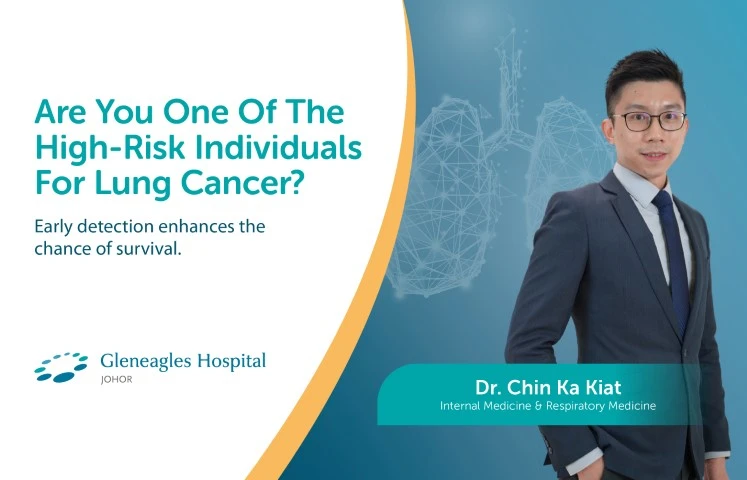Overview of Heart Problems in Young Adults
Heart disease, once perceived as an issue predominantly affecting older individuals, is increasingly being seen among younger adults. This concerning trend has drawn the attention of medical professionals like Dr. Kam Ji Yen, a consultant interventional cardiologist at Gleneagles Hospital Johor, who is actively involved in treating and managing heart conditions in younger populations.
Dr. Kam Ji Yen points out that young adults, typically defined as those between 15 and 39 years old, are facing heart attacks and other cardiovascular conditions more frequently. In Malaysia, the average age of heart attack patients is lower than in neighbouring countries, with nearly one in five heart attacks occurring in individuals under 40. These statistics highlight the importance of early detection and preventive care, especially for younger people who may not realize their vulnerability to heart disease
Common Heart Conditions Affecting Young Adults
At Gleneagles Hospital Johor’s Cardiology Centre, the most prevalent heart conditions affecting young adults have been identified. Rheumatic heart disease, which often results from rheumatic fever, is the leading cause of heart failure in this age group and frequently requires cardiac surgery, especially in low- and middle-income countries.
Coronary artery disease, characterized by the blockage of heart blood vessels due to atherosclerotic plaque formation, is also a significant concern. Heart attacks can occur when plaque ruptures, causing blood clot formation and resulting in thrombosis or sudden occlusion of major coronary arteries.
Other conditions, such as myocarditis and pericarditis, involve inflammation of the heart muscles and the surrounding membrane, respectively. Viral infections like COVID-19, dengue, and influenza can cause severe heart inflammation, potentially leading to heart failure, shock, and even death.
Moreover, cardiomyopathy, a disease affecting the heart muscle, is commonly diagnosed in this demographic. Hypertrophic cardiomyopathy, marked by abnormally thick heart muscles, can lead to arrhythmias and sudden cardiac death. Dilated cardiomyopathy, where the heart chambers become enlarged and weakened, often results in devastating heart failure and reduced lifespan. Young adults experiencing palpitations may also suffer from arrhythmias, with benign ectopic beats and supraventricular tachycardia (SVT) being the most common non-life-threatening forms.
Alarming Statistics on Heart Problems
Statistics from the Ministry of Health (MOH) indicate that approximately 35.2% of heart attack fatalities in Malaysia occur in individuals under 60. In 2022, coronary artery disease was the leading cause of death, with 20,322 fatalities, accounting for 16.1% of medically confirmed deaths that year. By age group, around 64.7% of heart attack deaths happen in those aged 60 and above, while 30.9% occur in individuals aged 40 to 59 years, 3.7% in those aged 30 to 39 years, and 0.6% in those below 30.
Causes of Sudden Cardiac Arrest in Young Adults
Sudden cardiac arrest (SCA) represents a life-threatening emergency resulting from an abrupt loss of heart function, leading to loss of consciousness and collapse. If not treated promptly, SCA can be fatal. The causes of SCA in young adults are not entirely understood, but they may include:
- Coronary artery abnormalities (atherosclerotic or anomalous coronaries)
- Hypertrophic cardiomyopathy (abnormally thick heart muscles)
- Arrhythmogenic right ventricular cardiomyopathy (ARVC) – replacement of some heart muscles with scar tissue
- Primary arrhythmias, such as Long QT syndrome or Wolff-Parkinson-White syndrome
- Myocarditis – inflammation of the heart muscles
Risk Factors for Sudden Cardiac Death
Several risk factors should prompt additional testing for young adults, including:
- A family history of unexpected sudden death in a healthy family member under age 50
- A family member with an inherited heart muscle or electrical issue
- Chest pain, fainting, or seizures during exercise
- Being born with a congenital heart defect
Lifestyle Factors Affecting Heart Health
At Gleneagles Hospital Johor, it is recognized that lifestyle factors such as diet, exercise, and stress significantly contribute to heart health in young adults. The pressures of modern life can negatively impact cardiovascular health through unhealthy coping mechanisms and physiological stress. Poor diet, sedentary lifestyles, and lack of exercise increase the risks of obesity, hypertension, diabetes, and high cholesterol, all of which predispose young adults to heart disease or stroke at an early age.
Substance Abuse and Heart Problems
Substance abuse, including tobacco, drugs, and alcohol, remains a significant concern among young adults and is strongly linked to heart issues. Tobacco use accelerates atherosclerosis and is associated with premature coronary artery disease. Research has shown that e-cigarettes and vaping pose risks to heart and lung health. Furthermore, excessive alcohol consumption and certain illicit drugs have been connected to heart failure and cardiomyopathy.
Emerging Risk Factors for Heart Disease
Non-modifiable cardiovascular risk factors include age, gender, family history, and ethnicity. Modifiable factors encompass hypertension, high cholesterol, diabetes, smoking, obesity, unhealthy diets, and lack of physical activity. In recent years, new risk factors have emerged. Conditions such as gout, inflammatory bowel disease, psoriasis, and autoimmune diseases like rheumatoid arthritis and systemic lupus erythematosus are associated with a heightened risk of coronary artery disease due to increased inflammatory activity.
Commonly Overlooked Symptoms of Heart Problems
Symptoms of heart disease in young adults are similar to those experienced by older individuals, yet younger people often dismiss these signs, leading to worsening conditions. Typical symptoms of ischemic heart disease include discomfort in the chest and breathing difficulties during physical exertion, often accompanied by numbness and discomfort in the shoulders, arms, neck, jaw, or back. Unfortunately, these symptoms can be mistaken for gastritis or musculoskeletal issues, resulting in delays in seeking treatment.
Importance of Early Detection
According to Dr. Kam Ji Yen, Consultant Interventional Cardiologist at Gleneagles Hospital Johor, early detection of heart disease can save lives by preventing severe complications such as heart failure, arrhythmias, or even sudden death. Dr. Kam emphasizes the importance of screening tests for young adults with risk factors, including blood tests, electrocardiograms (ECG), and chest X-rays. These tests can help detect potential issues early and allow for timely intervention. Recommended Screening Tests for Young Adults
Asymptomatic young adults with cardiovascular risk factors and a family history of heart disease are encouraged to undergo screenings for potential heart issues. Initial assessments may include routine blood tests, electrocardiograms (ECG), and chest X-rays. Some individuals might require advanced evaluations such as echocardiograms (to assess heart structure and function), Holter monitoring (for rhythm), treadmill exercise stress tests, or CT coronary angiograms to screen for coronary artery disease.
Lifestyle Changes for Heart Health
Being overweight can lead to hypertension, diabetes, and high cholesterol, collectively known as metabolic syndrome, which increases heart problem risks. A lack of physical activity and regular exercise also contributes to heart issues. Young adults are encouraged to adopt heart-healthy lifestyles, including regular exercise, maintaining a healthy weight, eating a balanced diet, managing stress, avoiding tobacco, and limiting alcohol intake. Regular check-ups and screenings can help identify and address heart problems earlier.
Role of Technology in Heart Health Management
Dr. Kam Ji Yen also highlights the role of modern technology in managing and preventing heart problems. At Gleneagles Hospital Johor, patients benefit from the latest advancements in wearable health devices, remote monitoring systems, and AI-powered tools. These innovations allow real-time monitoring of heart conditions and help patients stay proactive about their health. With telemedicine and mobile apps, patients can engage with healthcare providers and receive advice without leaving home.

.webp?sfvrsn=257e81ef_7)

.webp?sfvrsn=cac9ca10_7)










